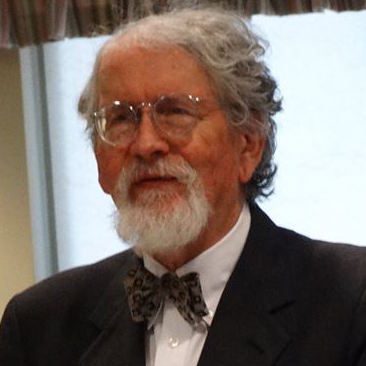

 Does Ethical Culture provide a place for people who identify themselves as conservatives? If by this we mean “are Ethical Societies welcoming environments for conservatives,” the answer is probably “no.” A more interesting question is, “should it be?”
Does Ethical Culture provide a place for people who identify themselves as conservatives? If by this we mean “are Ethical Societies welcoming environments for conservatives,” the answer is probably “no.” A more interesting question is, “should it be?”
Sociologically, the Ethical Movement is a liberal denomination. American denominations, and congregations within denominations, tend to uniformity in social as well as religious outlook. Our members and Leaders tend liberal in politics and in social attitudes. Most would probably describe themselves as liberal Democrats, and some are even farther left. Our bias is toward change if we think change will eliminate barriers and improve individual and social conditions. We are proud of our participation and sometimes leadership in reform movements. People of liberal disposition come to us because they feel at home, and membership likely reinforces and advances a liberal outlook and proclivity to take progressive action.
The above paragraph describes me, but I think it would be a good thing for Ethical Culture if conservatives could find a home in our Movement. Understand, though, that I’m not thinking about the political and social conservatism of the moment that, for shorthand purposes we can characterize as Trumpian conservatism. That conservative would not and should not find a place in an Ethical Society; their vision of a good society and how to achieve it, and their approach to public discourse differs too greatly from the vision of Ethical Culture.
But that is not the only kind of conservatism. Think in terms of classical conservatism or even people who are conservative by temperament but not opposed to any change. For example, think of David Brooks of The New York Times and National Public Radio. I sometimes grind my teeth when I read him or talk back to him on the radio, but he’s thoughtful, he often champions values that I espouse, and I learn from him. Is there a place for such a conservative in the Ethical Movement? I certainly hope so.
Here it is important to make two distinctions about Ethical Culture as a liberal religion. As noted above, sociologically we are a liberal denomination. But Ethical Culture is a liberal religion in another, very different, sense. Liberal religion means a religion without creed or dogma, in which beliefs flow from the membership rather than from authority. Liberal religion stresses inquiry and evolving understanding rather than received wisdom.
While there is a strong correlation between religious liberalism and liberalism in other spheres, a person who was conservative on other issues could be a religious liberal. One doesn’t have to be politically, economically, or socially liberal to be a non-theistic humanist, to adhere to a religion that is founded on the supremacy of ethics, and thus to believe that the true test of human behavior is in behavior toward other humans and (as has been lately added to classic humanism) the natural environment.
What is the place of conservatives in the Ethical Movement? It is the same as for those of us who describe themselves as liberals: to care about our fellow occupants of the earth, whether near or far; to respect the worth and dignity of everybody by treating even opponents with respect; to be open to new ideas; and willing to engage with the challenges of community. I tend to define these as liberal characteristics, but they are not exclusively “liberal.” We all probably know people—perhaps even in Ethical Societies—who share our humanism, who are in accord with our political and social outlook, but in their behavior do not respect others who hold different views. They might be defined as religious liberals because of their affiliation, but they behave illiberally. I can imagine a creative, effective Ethical Culture where people of divergent views come together in the spirit of eliciting the best in the other.
This, indeed, is classical Ethical Culture. Adler saw the spiritually creative interaction when people come together in all their individual uniqueness, enriching the interchange with their differentness. We already do this. Although generally liberal, our members are varied in their other characteristics. Some are capitalists and some socialists, some are pacifists and some are people who proudly served in the military. We are vegans and omnivores. These differences can be creative. Adding people of conservative tendency further enriches the mix.
The challenge for Ethical Culture, as for the larger society, is to develop a community of diverse voices united by shared values of respect and community, thoughtfully and compassionately considering how to walk together and where their path should lead.
Sign up for emails from AEU